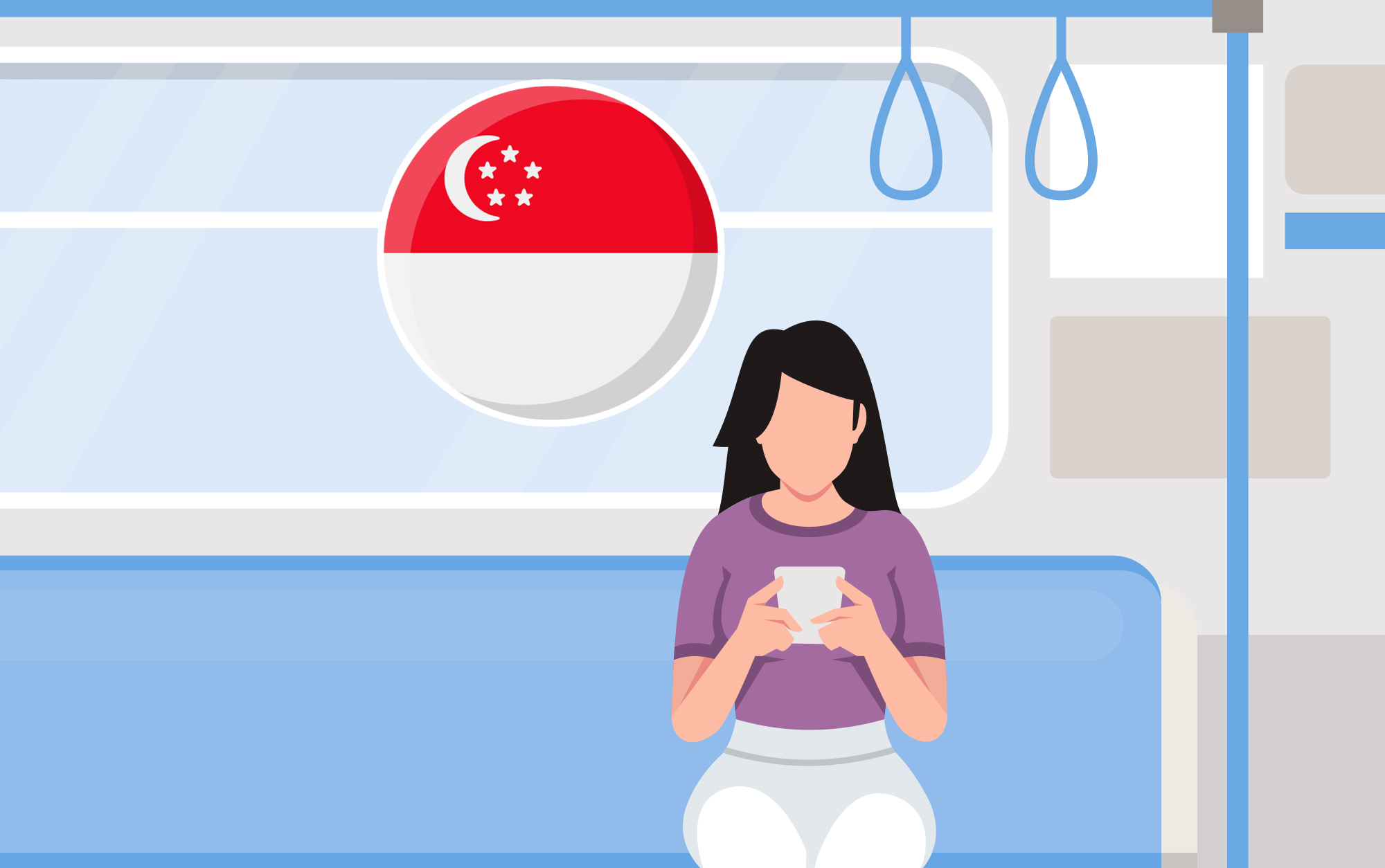In this 3-part blog series, we explore how technology is driving change, growth, and new ways of communicating internationally. Our former intern, Ioanis Gonzalez-Rodriguez, takes a look at technology and communications around the world during his travels during university and post-graduation.
The way we communicate is constantly evolving with technology and societal norms. At Level365, we are focused on cloud-hosted technology that connects, integrates, and improves communications and collaboration. The service we offer, Unified Communications as a Service (UCaaS), is also constantly changing to meet the diverse and growing needs of our customers. Our service combines traditional voice with UCaaS features including Analytics, Chat, SMS, Video Collaboration, and CRM Integrations and more.
Usage of Devices in Singapore
How much time do you think you spend on digital devices a day? If you guessed anywhere between 6-8 hours, you would only be at about half of what the average Singaporean spends on digital devices per day. The 12 hours a day that Singaporeans spend on devices equals half their day and 3/4ths of their waking hours. In today’s modern workforce, most employees are dominated by desk jobs requiring 7 hours of screen time daily. It’s increasingly important for the world’s white-collar workers to understand the impact those hours can have on their lives.
Consequences of High Levels of Screen Time
Singapore lies in the heart of a region that dominates the world in daily internet usage and screen time. But not unlike its Southeast Asian neighbors, the negative effects of such an amount of daily digital screen-time often goes unnoticed or even ignored by Singaporeans. The consequences of too much screen time include, but are not limited to the following:
- Becoming more unfit
- Putting your health at risk
- Getting less sleep
- Mental health suffering
- Other unhealthy addictions such as
- Gaming
- Shopping
- Gambling
As one of the most digitally engaged countries in this region, Singaporeans continue to rank below average on AIA’s healthy living index. They also self-identify as being less satisfied with their own health as compared to others in the region.
With the rise of the use in public transportation, so too rises screen time rates throughout the family. Children are increasingly using public transportation to get to school and their parents follow them on their way to work. The Singaporean government has invested huge amounts over the past decade into public transport. This has brought the number of cars in 2019 down to the lowest amount since 2010. With these hands-free modes of transportation that also may take over an hour to complete the journey, Singaporeans resort to their tablets, cell phones, and laptops to pass the time.
Why are more people using public transportation?
Cindy Dermawan, 39, a car-owner who takes public transportation to work says it would take her only 30 minutes to drive to work. “Public transport takes a longer time, but it’s fine because I can leave (work) earlier and still get home within the time that I want… It’s also ‘me’ time … sitting on public transport every morning is something I enjoy, I get to do my own thing, listen to music. Going home, it also means an additional 45 minutes to one hour working on my (mobile). If I drive, I can’t do that.” The money Singaporeans are saving every year from switching to public transport may actually be harming their health. Instead of driving, motorbiking, or cycling they dedicate more time to their screens.
Lack of Discipline in Screen Time for Adults
Dr. Michael Netzley, an academic director with Singapore Management University Executive Development, also agrees that people are getting too much screen time. “The problem is not technology. The problem is a lack of disciplined use of the technology”. As adults, it is easy to regulate screen time in children, but who is there to regulate adults? Over half of the adult population in Singapore admits to having an internet addiction, according to a study conducted by AIA. Thus, making the small nation of 5.6 million one of the most screen-addicted in the world.
Dr. Michael Netzley, an academic director with Singapore Management University Executive Development, also agrees that people are getting too much screen time. “The problem is not technology. The problem is a lack of disciplined use of the technology”. As adults, it is easy to regulate screen time in children, but who is there to regulate adults? Over half of the adult population in Singapore admits to having an internet addiction, according to a study conducted by AIA. Thus, making the small nation of 5.6 million one of the most screen-addicted in the world.
Easy Changes for Healthier Living
Aside from consciously trying to cut back on screen-time, some of the best methods for losing the addiction might include:
- Keeping your devices away from the bedroom
- Adopting a more active lifestyle
- Avoiding buying new gadgets every year.
While most Singaporeans may never read this article about the effects of too much screen time, you did. So next time you’re on public transport, walking around the city, or around anyone you don’t know, try putting your phone away and starting a conversation with them. I promise all the tweets will still be there when you get back.
About the Author: Ioanis Gonzalez-Rodriguez
Ioanis Gonzalez-Rodriguez grew up in New York and New Jersey and is a recent graduate of Butler University in Indianapolis. Ioanis had several internships during his time at Butler, including a 5-month internship during the Spring of 2019 at Level365.
Over the past 5 months, Ioanis has been fortunate to travel to 5 continents and 11 countries. His original goal was to complete 7 continents in one year, however, his plans changed. He had an unexpected opportunity to come back home to New York City. As a child, Ioanis grew up in a lower-income neighborhood and public school system and would have never dreamed that he would be able to do what he has already done to that point. He first became inspired to travel after getting his first passport junior year of college to study abroad in Australia. After a few weeks in Australia, he realized that one semester was not enough time to fully experience and immerse himself. He decided to extend his abroad program for a full year.
Catching The Travel Bug
After coming back to the United States for his senior year at Butler University, Ioanis reflected and decided he should take the time to travel internationally. He caught the travel bug and there was no better time than now to explore the world. He was young and unattached to a job, relationship, or geographic location and had the experience. The call to travel was strong and felt like a duty that needed to be fulfilled soon or forever lost. One of his biggest take-aways is seeing how different cultures can be from one country to another. Even for countries that are relatively close in proximity. Traveling even a short distance can feel like entering a completely different universe. Another benefit of traveling is that it forces you to leave all your prejudices at the door. And you need to be receptive to learning the ins and outs of that culture.
Ioanis’ advice on traveling internationally is simple; go, discover, and be open to new experiences.
Check out our other features from Ioanis on Australia and Malaysia.





